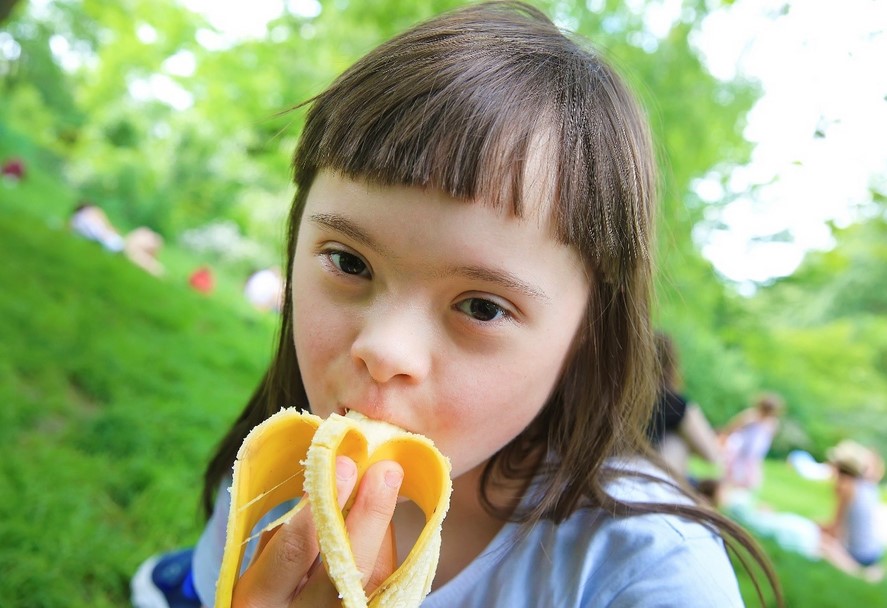Common Nutritional Concerns for Children in Australia
You know a healthy diet is essential for children to get the nutrients they need for healthy growth and development. But all the information out there about diet and health can be confusing, making it hard to know what advice to follow, especially if your child has a disability or medical condition.
The good news is that even small dietary changes can make a big difference to your child’s health. And making these changes might be easier than you think. Our paediatric dietitians cover some common nutritional concerns for children in Australia and provide helpful insights for managing them.
Common nutritional issues in Australian children
Children in Australia may face a range of dietary challenges that can impact their growth, development, and overall quality of life. Some of the most common nutritional concerns in children include:
Inadequate intake of fruits and vegetables
Many Australian children and young people are not eating the recommended serves of vegetables and fruits each day[i],[ii]. Fruits and vegetables contain fibre, which is important for healthy immune and digestive system function. Children who don’t eat enough vegetables and fruits (along with whole grains) may not get enough fibre, which can lead to constipation. Lack of fibre is also linked to type 2 diabetes and excess weight gain, and increased risk of bowel cancers and heart disease in later life.
Vegetables and fruits also contain many important vitamins and minerals that support good health, including vitamin C, which the body needs to absorb iron, heal wounds, and overcome infections.
Allergies and intolerances
In Australia, around one in ten children has a food allergy[iii], while up to one in four people has a food intolerance[iv]. Unless managed well, eating a restricted diet to manage food allergies or intolerances can lead to nutrient deficiencies. For example, avoiding dairy to manage lactose intolerance could lead to a lack of calcium – an essential nutrient for strong bones and healthy teeth.
Too many ‘sometimes’ foods
The Australian Dietary Guidelines advise that people of all ages, including children, limit eating foods that contain saturated fat, added salt, added sugars and alcohol[v]. These are known as ‘discretionary’ foods. They include processed foods and treat foods like chips, lollies, cakes, chocolates, biscuits and many common take-away foods, such as burgers, pizzas and deep-fried foods. They also include sports drinks, fruit juice, cordial and soft drinks.
These foods and drinks are low in nutrients and can contribute to poor health, tooth decay and excess weight gain. They should only be eaten on special occasions and in limited amounts. However, many Australian children are eating them regularly[vi].
Restricted and fad diets
Older children and adolescents sometimes choose to follow specific or fad diets or restrict some food groups. This may lead to nutrient deficiencies that adversely impact growth and development. For example, an adolescent who opts for a vegan diet is at risk of iron and calcium deficiency. Without input from a dietary professional, following such a diet could impact their health, energy levels, and physical and cognitive development.
Weight management issues
Children who are above or below a healthy weight for their age can be deficient in various nutrients because their diet is lacking in healthy foods. Good nutrition can help children stay within a healthy weight range as they grow. This can help them have better health now and in adulthood, and also lower their risk of many health conditions.
Nutritional concerns in children with disability
Children with disability can be especially prone to nutritional concerns. Nutritional issues in children with disabilities may be related to:
- sensory challenges – children with conditions such as autism spectrum disorder may have sensory sensitivities and struggle with certain food textures, smells, and flavours.
- medical conditions – children with disability may have medical conditions that affect their nutritional requirements.
- digestive issues – gastrointestinal issues such as constipation, coeliac disease, and gastroesophageal reflux can be more prevalent among children with disabilities, affecting nutrient absorption.
- medications – some medicines can affect appetite and nutrient absorption, which can lead to nutritional deficiencies and weight management issues.
- dietary habits – disability can impact an individual’s ability to make healthy food choices. For example, research has shown people with intellectual disability tend to eat larger portions, more ‘sometimes’ foods, and fewer vegetables and fruits[vii].
- lack of nutrition knowledge and food preparation/cooking skills – children and adolescents with disability may have a limited understanding of nutrition and face barriers to building skills in buying and preparing healthy food.
- physical inactivity – physical or intellectual disability can pose barriers to getting enough physical activity for optimal health and wellbeing. Lack of physical activity can further complicate issues related to poor nutrition, such as excess weight gain and heightened risk of chronic health conditions such as type 2 diabetes and heart disease.
How dietitians support healthy growth and development in children
When it comes to addressing the nutritional needs of children with disability, NDIS-funded dietetic services can be invaluable. Dietitians are university qualified health professionals with extensive training in children’s nutrition. They have the expertise to create tailored strategies that ensure children get the nutrients they need for healthy growth and development.
Here’s how professional dietitians, like the paediatric dietitians at Active Ability, can make a positive impact.
Comprehensive assessment
The first step in managing nutritional issues involves conducting a thorough assessment of your child’s current dietary habits, preferences, medical history, and any specific nutritional concerns. This provides the foundation for developing an individualised plan.
Designing tailored meal plans
Based on this assessment, your dietitian will develop an individualised meal plan that considers your child’s health, age, dietary requirements, sensory sensitivities, and any existing deficiencies. These plans help ensure children get the necessary nutrients while accommodating their preferences and challenges.
Nutrient optimisation
If your child has any nutrient deficiencies, your dietitian may recommend appropriate supplementation. For instance, if your child is deficient in iron, your dietitian may suggest iron-rich foods and supplements to address the deficiency and prevent related health issues.
Managing sensory challenges
Children with disability often experience sensory issues that affect their food choices. Dietitians employ creative strategies to modify the texture, taste, and presentation of foods to align with the child’s sensory preferences, while still providing the necessary nutrients.
Educating support people
Practical training
They might also provide practical training for your child and family to build capacity for choosing and preparing healthy foods. For example, they might teach you how to read food labels, or to cook using healthier techniques such as steaming or grilling.
Monitoring and adjustment
Strategies dietitians use to support children’s nutritional needs
Paediatric dietitians use a range of strategies to help children reach their goals. These include:
1. Texture modification
If your child has sensory issues with certain foods, your dietitian might provide advice for modifying its texture or consistency. For example, they might suggest pureeing vegetables into sauces or cutting them in small pieces you can add to soups. Or you might be able to blend fruit into smoothies. These strategies can improve your child’s nutrient intake without triggering sensory challenges.
2. Varied presentation
Dietitians sometimes recommend creative ways to present nutrient-rich foods in an appealing manner. For example, they might suggest you make a smiling face out of colourful vegetables, or present fruits and vegetables on their favourite plate. This can encourage children to try new foods.
3. Gradual exposure
Your dietitian knows introducing new foods can be challenging, especially if your child is a picky eater or fussy feeder. They can design a graded exposure approach, introducing your child to unfamiliar foods in a progressive manner, starting with small portions. This can foster a positive experience with trying new foods.
4. Family Involvement
Dietitians involve the entire family to create a supportive environment for making dietary changes. When family members participate, children feel encouraged to explore new foods and develop healthier eating habits. For example, your dietitian might advise allowing each family member to choose which meal you have one night per week or choosing a new food to try together.

5. Mealtime advice
Family mealtime challenges can be common if your child is a picky eater or has chosen to follow restrictive eating patterns. Your dietitian can help you find ways to make mealtimes smoother and easier. Creating a calm and comfortable eating environment, for example, can promote positive associations with food.
6. Snack planning
Healthy snacks are just as important as healthy family meals. Your dietitian can help you find snack options that are nutritious, appealing, and cater to your child’s dietary needs.
Helping children with disability reach their goals through good nutrition
Our expertise, personalised guidance, and creative strategies help ensure your child gets the nutrients they need for healthy growth and development, while building a positive relationship with food and eating. This creates a strong foundation for healthy living – now and into the future.
To support your child’s optimal wellbeing, we also offer paediatric physiotherapy and exercise physiology. We do not have a waiting list, so you can get started as soon as you’re ready. And we want you to get maximum value from your NDIS funding, so we do not charge for travel.
Contact our friendly team on (02) 9161 5887, hello@activeability.com.au or via our contact form to find out more about how we might be able to support your child and family.
References
[i] – Australian Institute of Health and Welfare. Poor diet in children. Last updated: 19 Jul 2019. https://www.aihw.gov.au/reports/food-nutrition/poor-diet/contents/poor-diet-in-children. Accessed 21.8.2023.
[ii] – AIHW. Australia’s youth: Nutrition. Last updated: 25 Jun 2021. https://www.aihw.gov.au/reports/children-youth/nutrition#guidelines. Accessed 21.8.2023.
[iii] – Healthdirect. Food allergies in children. Last reviewed: July 2021. https://www.healthdirect.gov.au/food-allergies-in-children. Accessed 21.8.2023.
[iv] – Nutrition Australia. Food intolerances. Revised: August 2021. https://nutritionaustralia.org/fact-sheets/food-intolerances/. Accessed 21.8.2023.
[v] – Eatforhealth.gov.au. Australian dietary guidelines 1 – 5. N.D. https://www.eatforhealth.gov.au/guidelines/australian-dietary-guidelines-1-5. Accessed 21.8.2023.
[vi] – The Royal Children’s Hospital Melbourne. RCH National Child Health Poll. December 2017. https://www.rchpoll.org.au/wp-content/uploads/2017/12/NCHP9_Poll-report_Nutrition.pdf. Accessed 21.8.2023.
[vii] – Adolfsson P, Sydner YM, Fjellström C, Lewin B, Andersson A. Observed dietary intake in adults with intellectual disability living in the community. Food Nutr Res. 2008;52:10.3402/fnr.v52i0.1857. doi:10.3402/fnr.v52i0.1857
Get in touch
hidden
Follow Us

